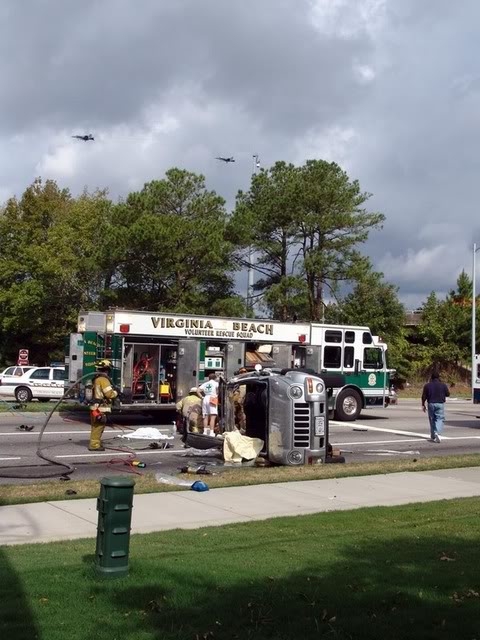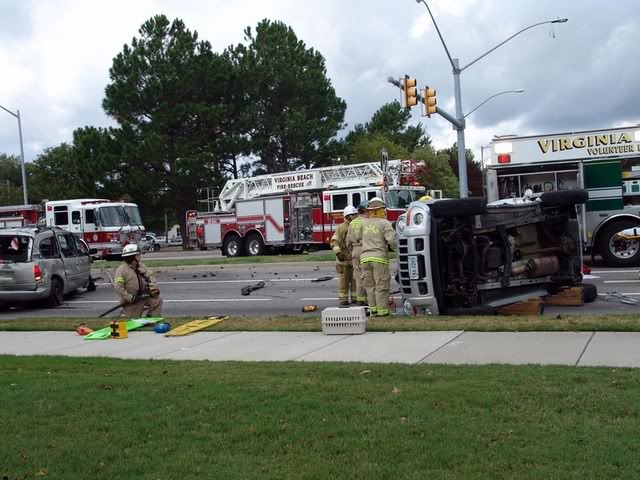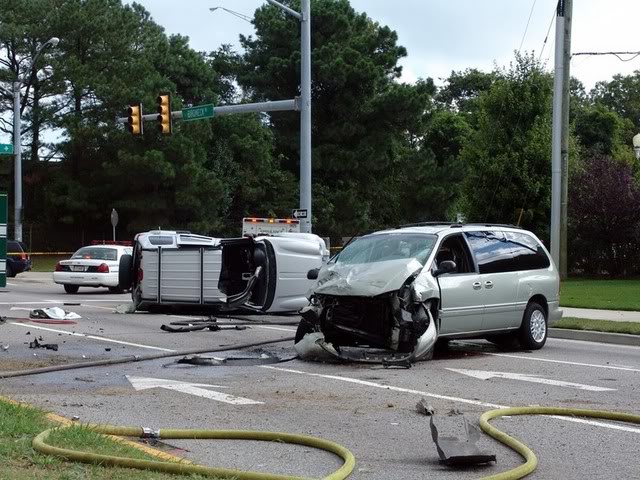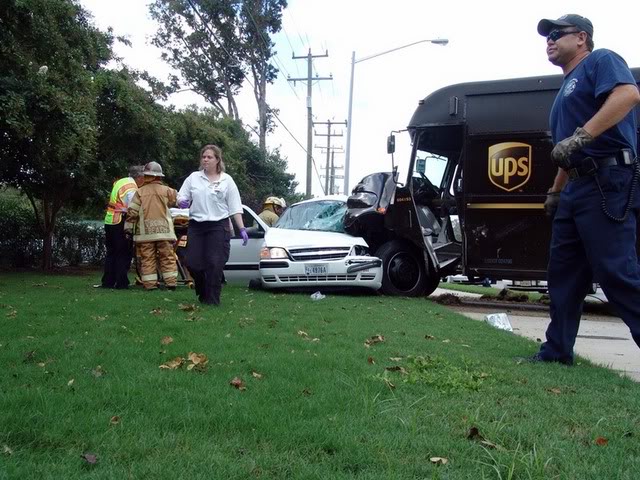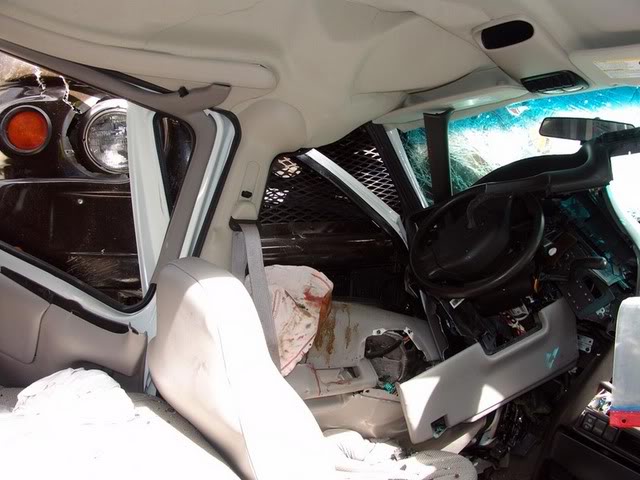You are using an out of date browser. It may not display this or other websites correctly.
You should upgrade or use an alternative browser.
You should upgrade or use an alternative browser.
UPS claimed this to be brake failure
- Thread starter xkingx
- Start date
EAM_Master
Part-Time'er for Life!
I wonder if it was really brake failure if he can get charged with it and fired? Anyway, that sucks!!!
Jumperwire
Parceling the Fla coast
Don't these people realize it's peak season!! They need to stay out of our way!!! Hope all were ok!!!
Hope all were ok!!!
 Hope all were ok!!!
Hope all were ok!!!upsdude
Well-Known Member
I’m familiar with that accident and it was indeed brake failure. A rear wheel cylinder failed as was verified by the automotive department. If I remember correctly the driver had successfully completed 3 stops prior to the accident. My information came from a member of the automotive department and a member of management. I don’t work in the responsible center. It’s also my understanding the driver was NOT charged by either UPS or local police.
We were told during the following day’s PCM that a “proper Pre-trip” would have prevented the accident. After the PCM I asked for a jack, 2 jack stands, and an impact wrench so I could “Pre-Trip” my rear brakes. The supervisor gave me a confused look and denied my request.
Just a note for the non-mechanically inclined. Check the insides of the rear wheels on your package car. If you see fluid or a greasy substance on the inside of the most inner wheels and tires. DON’T DRIVE THE CAR, PERIOD. That fluid or grease could indicate a brake problem waiting to happen.
We were told during the following day’s PCM that a “proper Pre-trip” would have prevented the accident. After the PCM I asked for a jack, 2 jack stands, and an impact wrench so I could “Pre-Trip” my rear brakes. The supervisor gave me a confused look and denied my request.
Just a note for the non-mechanically inclined. Check the insides of the rear wheels on your package car. If you see fluid or a greasy substance on the inside of the most inner wheels and tires. DON’T DRIVE THE CAR, PERIOD. That fluid or grease could indicate a brake problem waiting to happen.
upsdude
Well-Known Member
Hope all were ok!!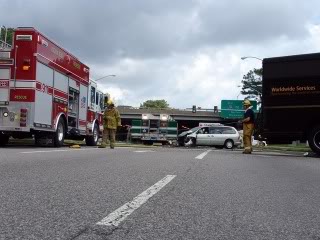
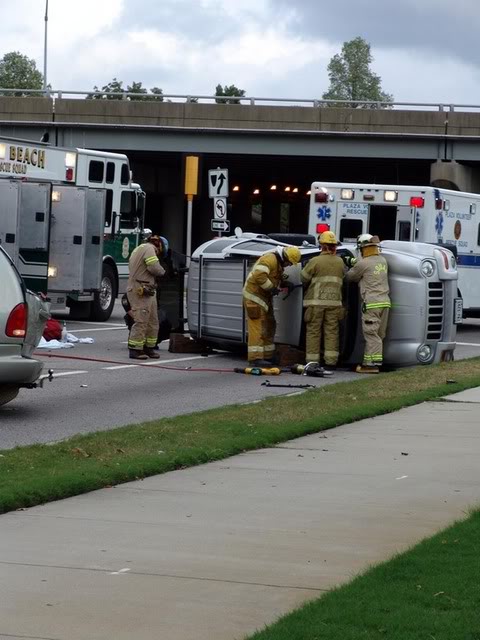
the UPS driver actually was back driving within a week..he recieved stitches in his forearm.
as for the military guy here's a pix of him...
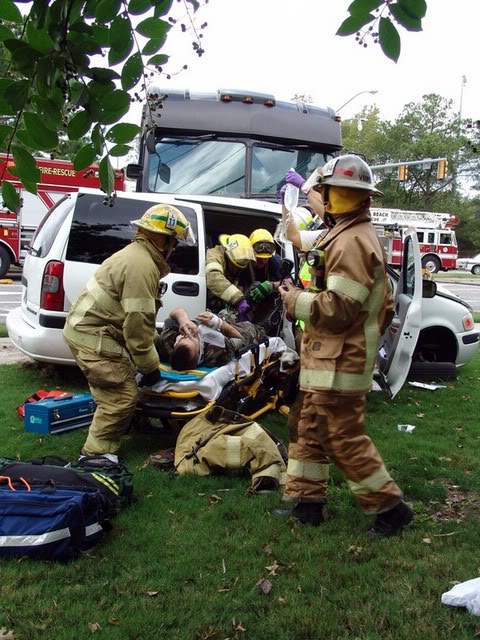
UPSDUDE..IF you look at the pix you can see that it was at the birdneck exit..he shot straight across the four lanes..stopping here. I was told by a delivery sup. he did use the hand brake but it didnt help.


the UPS driver actually was back driving within a week..he recieved stitches in his forearm.
as for the military guy here's a pix of him...

xkingx
Well-Known Member
Most important thing to do, is write up any potential problems, once a week.(at least)
Because if you have a failure of any kind, you'll be covered.
We had a truck, that leaked(not burned) 5-7qts of oil a day, I told the mechanic
that I'd be writing it up everyday, They said they weren't allowed to replace the engine till it failed(I guess the block or something was cracked)
funny, a mechanic and carwasher told me the same thing..
trickpony1
Well-Known Member
fredlyOO said: "because if you have a failure of any kind, you'll be covered.".
I got news for ya...........
if you have a failure of any kind, especially if it involves third party liability, see how fast those filed DVIR books disappear. The company can then skirt liabilty or shift it to someone else (namely the driver) by saying they didn't know anything about it.
Seen it happen...........
I got news for ya...........
if you have a failure of any kind, especially if it involves third party liability, see how fast those filed DVIR books disappear. The company can then skirt liabilty or shift it to someone else (namely the driver) by saying they didn't know anything about it.
Seen it happen...........
what's that brown stuff on the driver door?
I don't think it will. And the only reason why is because the courts won't allow it. It was a UPS owned vehicle maintained by UPS personell. The employee is indemnified, as long as he/she did whatever was reasonably possible under good faith (a pre-trip walk-around)fredlyOO said: "because if you have a failure of any kind, you'll be covered.".
I got news for ya...........
if you have a failure of any kind, especially if it involves third party liability, see how fast those filed DVIR books disappear. The company can then skirt liabilty or shift it to someone else (namely the driver) by saying they didn't know anything about it.
Seen it happen...........
Similar threads
- Replies
- 18
- Views
- 2K
- Replies
- 205
- Views
- 16K
- Replies
- 63
- Views
- 9K
- Replies
- 276
- Views
- 15K

